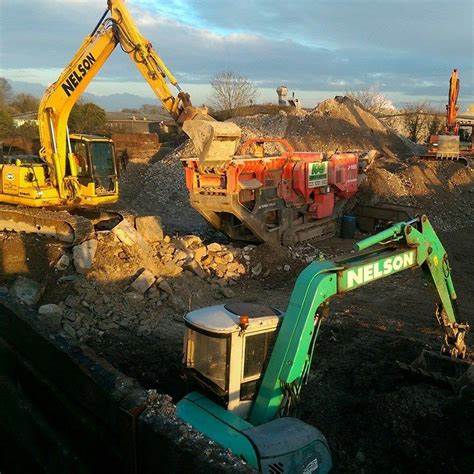The appeal in Nelson Plant Hire Ltd v Bunyan (VO) [2022] UKUT 309 (LC), concerned the 2017 rating list assessment of a secondary aggregate processing plant at Andover. The case was due to be heard under the Upper Tribunal’s simplified procedure, but was transferred to the standard procedure because of a legal issue regarding scope of proposal under the check, challenge, appeal (“CCA”) regime, which the respondent Valuation Officer said had not previously been tested.
The appellant ratepayer (through an agent) had made a “check” seeking a split of the assessment into four separate hereditaments, because four different companies occupied the site. The Valuation Officer declined to split the assessment and issued a “no change” check decision. The ratepayer, again through their agent, made a proposal (“challenge”) on the basis that the compiled list assessment for the property was incorrect. The Valuation Officer then issued a challenge decision confirming the existing assessment (RV £28,750). The ratepayer had, by this time, dismissed his agent, and made his own appeal to the Valuation Tribunal for England (VTE), and that appeal included an assertion that the assessment should be split. The VTE determined that it did not have jurisdiction to split the assessment because the originating proposal was not made on the grounds of a split, and issued a decision confirming the list assessment.
The ratepayer appealed against the VTE decision and, on appeal to the Upper Tribunal, the Valuation Office was represented by Counsel and the ratepayer represented himself. The matters for determination by the Upper Tribunal were:
- Does the Tribunal have jurisdiction to consider the suggested split of the hereditament, having regard to the terms of the ratepayer’s “challenge” to the entry in the list?
- Does the Tribunal have jurisdiction to consider a challenge to the rateable value shown in the list for the hereditament, having regard to the terms of the appeal to the VTE?
- If the hereditament is to be split, how should it be split and what rateable value should be given to the part occupied by the appellant?
- If the hereditament is not to be split, is the rateable value shown in the list, correct?
In respect of the first issue the Tribunal found that there was no jurisdiction to determine a split of the assessment, because the proposal (challenge) was not made on grounds seeking a split. The respondent Valuation Officer submitted that none of the check documentation could be considered when determining the scope of the proposal. The Tribunal did not accept this assertion, but did not determine what (if any) check material could be taken into account when considering the scope of the proposal because “no matter how much of the material from the check stage is taken into account, it is not possible to interpret the proposal itself as requesting a split of the hereditament”.
In respect of the second issue, the respondent Valuation Officer submitted that the VTE (and hence the Upper Tribunal) had no jurisdiction to consider valuation, because the grounds of appeal to the VTE focused only on the split of the assessment. The Tribunal did not agree with this submission, describing it as “unattractive“, and pointing out that valuation was within the scope of the original proposal, and that the Valuation Officer had attended the VTE hearing and presented a case covering the valuation of the appeal property.
The Tribunal did not need to decide the third issue, because it was outside the scope of the proposal, but noted that, despite the presence of four different companies, paramount occupation of the site rested with the appellant ratepayer.
In respect of the fourth issue, the question of valuation, the Tribunal was critical of the respondent Valuation Officer’s approach, which adopted a valuation on the contractor’s basis. The Tribunal considered that there was no reason to displace the rent of the appeal property, and noted that “the valuer should consider very carefully whether it should displace the preferred methodology rather than being disregarded as unreliable. A more satisfactory approach, making use of all of the available evidence, is to consider whether a valuation based on market evidence corroborates or casts doubt on a valuation arrived at by the artificial and more subjective contractor’s basis which is usually seen as a method of last resort”. The Tribunal then carried out its own valuation, based on the rent, and determined an assessment of rateable value £22,500.
The Tribunal’s decision is an interesting one for two reasons. Firstly, it examines the “scope of proposal” rules within the context of CCA and, very largely, applies previous scope of proposal decisions to the new, CCA, context. Secondly, on the question of valuation, the Tribunal effectively abandoned the valuation approaches put forward by the respondent’s expert; which were a contractor’s basis valuation, and an alternative valuation based on comparable assessments. The ratepayer did not employ an expert valuer and the Tribunal determined its own valuation, based on the rent.
The guidance on scope of proposal under the CCA regime will be of importance in only a relatively small number of cases, but the guidance as to the primacy of valuations based on market rental evidence is of much wider application, and is an important consideration for all valuers valuing rented properties, but tempted not to value by reference to the rent.

